

What Triggers Neuropathy in Feet and How to Prevent It
Neuropathy in the feet develops when nerves responsible for sensation, balance, and muscle control become damaged or inflamed. This condition affects millions of Americans, especially adults managing diabetes, circulation problems, or long-term medication use. The first signs are often subtle tingling toes, burning soles, or occasional numbness but over time, those small sensations can turn into daily discomfort or loss of mobility.
The good news is that many causes of neuropathy can be prevented or controlled through healthy habits, early diagnosis, and attentive foot care. What triggers neuropathy in feet and how to prevent It? Understanding what triggers neuropathy in feet is the first step toward protecting nerve health and maintaining long-term comfort.

Understanding Neuropathy in the Feet
Neuropathy, or peripheral neuropathy, occurs when peripheral nerves, the ones outside the brain and spinal cord are damaged. In the feet, these nerves carry messages to and from the brain that control sensation, balance, and movement. When they are disrupted, the feet may feel numb, painful, or weak, even when there’s no visible injury.
Common symptoms include tingling, sharp or burning pain, muscle weakness, or a sensation of “walking on pins and needles.” Because nerves in the legs and feet are the longest in the body, they are often the first to show signs of dysfunction.
Peripheral neuropathy affects the nerves that send messages between the feet and the brain, making early detection key to prevention. Recognizing small changes in temperature sensitivity, balance, or skin color can help you act before nerve damage becomes permanent.
What Triggers Neuropathy in Feet?
The causes of neuropathy are wide-ranging, but most stem from poor blood flow, metabolic changes, toxins, or chronic diseases. Some triggers develop slowly over time, while others appear after injury or medication use.
Here are the main factors that commonly trigger foot neuropathy and how they affect the body.
Diabetes and Blood Sugar Damage
High blood sugar is the most common cause of foot neuropathy. Over time, elevated glucose damages tiny blood vessels that feed nerves, starving them of oxygen and nutrients. This process, known as diabetic neuropathy, affects about half of all people with diabetes according to the Centers for Disease Control and Prevention (CDC, 2023).
Uncontrolled diabetes can lead to numbness, burning pain, or foot ulcers that heal slowly. The longer blood sugar remains unstable, the higher the risk of irreversible nerve damage. Maintaining blood glucose within target ranges is therefore one of the strongest forms of prevention.

Lifestyle and Circulation Factors
Poor circulation limits oxygen delivery to nerves. Smoking, high cholesterol, or lack of physical activity can narrow blood vessels, slowing nutrient flow to the lower limbs. This increases the likelihood of tingling or cold sensations in the feet.
Obesity and prolonged sitting also affect blood flow. Staying active and maintaining a healthy weight helps ensure your nerves receive the oxygen and nutrients they need to function properly.
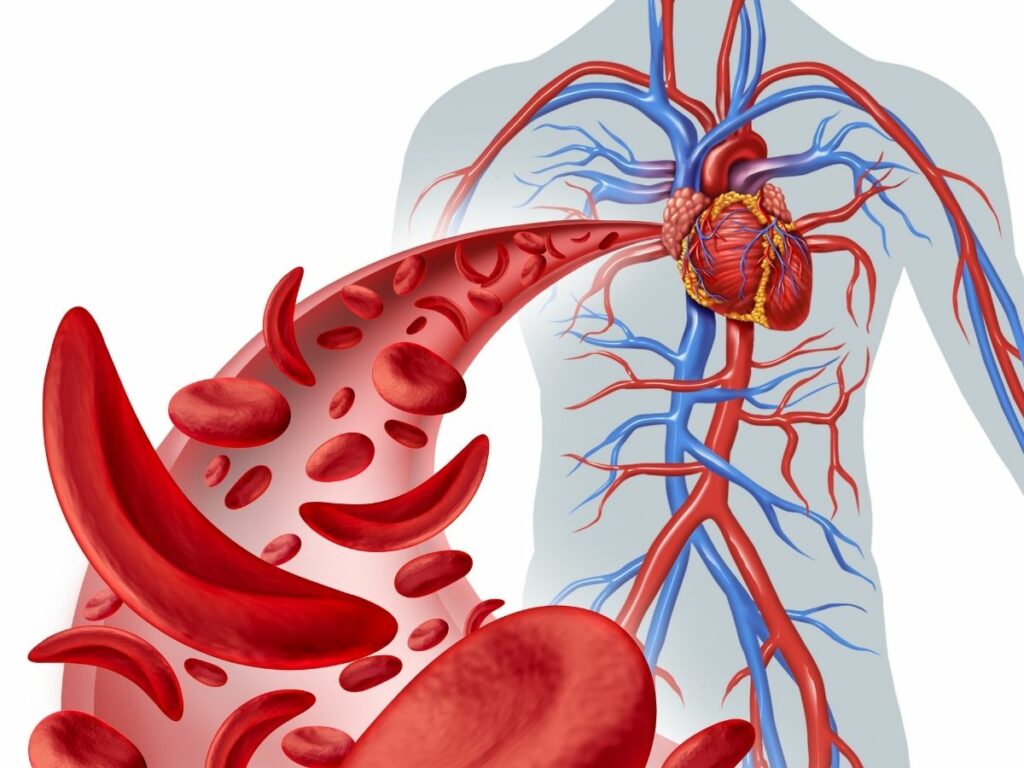
Injury, Alcohol, and Toxin Exposure
Physical injuries such as fractures, sprains, or repetitive strain can compress or damage nerves around the ankles or legs. Heavy alcohol consumption, on the other hand, interferes with vitamin absorption particularly B1, B6, and B12 which are critical for nerve repair.
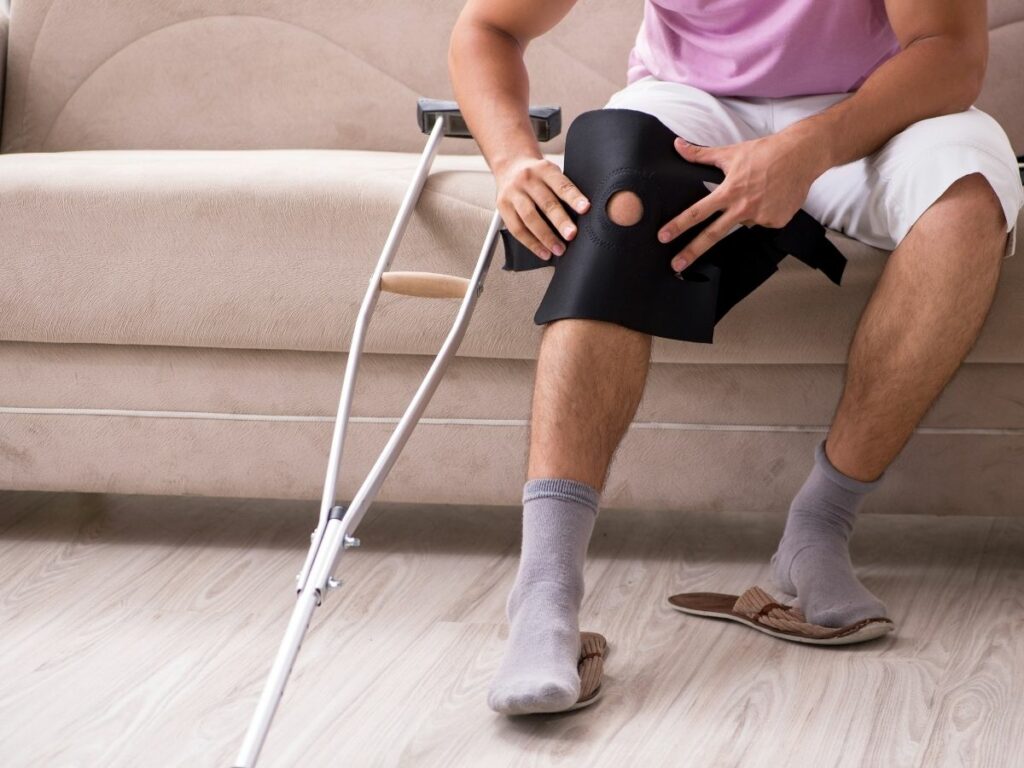
Exposure to industrial toxins like heavy metals, pesticides, or certain cleaning solvents can also lead to neuropathy. Workers in chemical or manufacturing environments are especially vulnerable if protective gear is not used consistently.
Medication and Nutrient Deficiency Links
Certain prescription drugs may trigger neuropathy as a side effect. Chemotherapy agents, some antibiotics, and medications used to treat HIV or heart conditions can cause nerve irritation or degeneration over time.

Deficiencies in essential nutrients such as vitamin B12, folate, and vitamin E are equally harmful. These vitamins support nerve insulation (myelin sheath), and their absence weakens electrical signals between the brain and feet. People following strict vegan diets or with gastrointestinal conditions that affect absorption should monitor nutrient levels regularly.
Early Warning Signs You Shouldn’t Ignore
Foot neuropathy often begins with subtle sensations that can be mistaken for fatigue or circulation issues. Ignoring these early signs can lead to permanent nerve damage or foot ulcers that become difficult to treat.
Here are common red flags to watch for:
- Tingling or Burning Sensations – Persistent “pins and needles” in the feet, especially at night.
- Numbness or Reduced Sensation – Inability to feel temperature changes or touch on certain areas of the foot.
- Sharp or Shooting Pain – Sudden electric-like jolts that worsen when walking or resting.
- Muscle Weakness or Instability – Trouble standing on your toes or feeling unsteady when walking.
- Wounds That Heal Slowly – Small cuts or blisters that go unnoticed can become infected due to poor sensation.
Recognizing these symptoms early allows doctors to test nerve function and address underlying causes such as diabetes, poor circulation, or vitamin deficiency. Prompt attention can prevent the progression from mild nerve irritation to chronic neuropathy.
Prevention and Lifestyle Protection
Preventing neuropathy focuses on protecting the nerves’ oxygen supply, improving circulation, and supporting the body with the nutrients it needs to regenerate tissue. Even if neuropathy has already begun, healthy habits can slow its progression and ease discomfort.
Nutrition and Vitamins for Nerve Health
A balanced diet rich in antioxidants, whole grains, lean proteins, and healthy fats supports nerve repair. Specific nutrients play an especially important role:
- Vitamin B12: Found in fish, eggs, dairy, and fortified cereals; essential for nerve insulation.
- Vitamin B6 and Folate: Support neurotransmitter function and protect the myelin sheath.
- Alpha-lipoic acid and Omega-3s: Powerful antioxidants that reduce inflammation and support nerve healing.
- Magnesium: Improves circulation and muscle relaxation, reducing cramping or stiffness in the feet.
Limiting sugar, processed fats, and alcohol can significantly reduce nerve stress and blood vessel damage.
Footwear, Hygiene, and Daily Habits
Wearing the right footwear protects sensitive nerves and prevents injuries. Choose shoes with cushioning, arch support, and enough room for toes to move freely. Avoid walking barefoot, especially if you already have reduced sensation.

Daily foot inspections are equally important. Look for blisters, redness, or swelling, and wash your feet gently with warm water and mild soap. Moisturize regularly to prevent cracking, which can lead to infection.
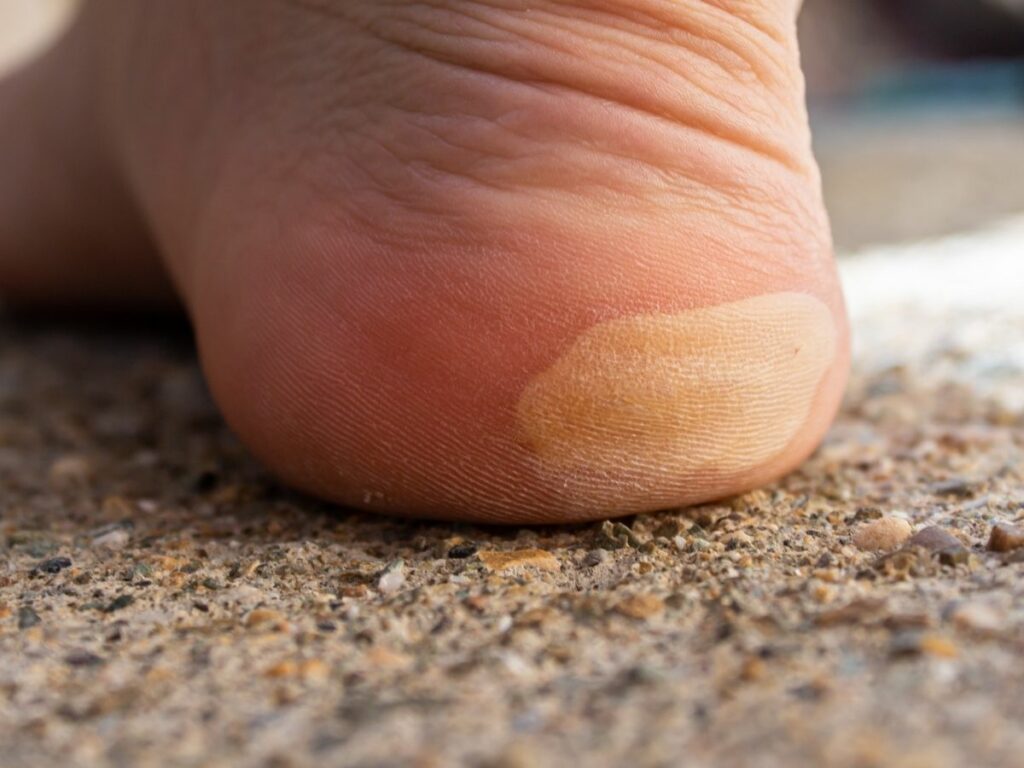
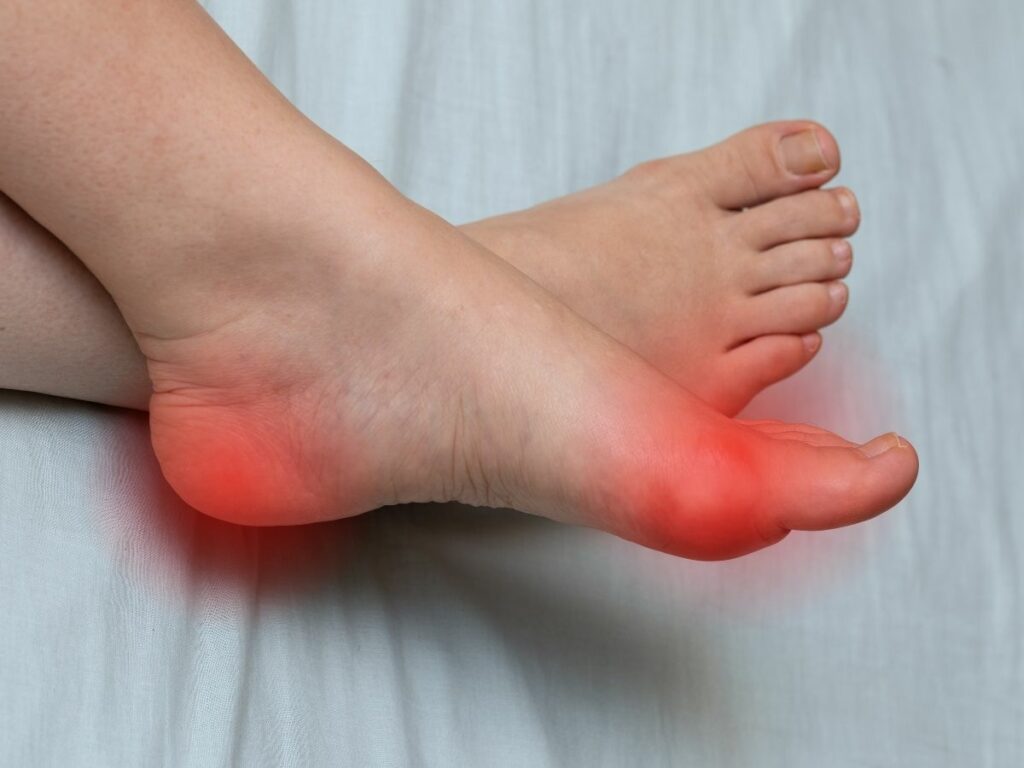
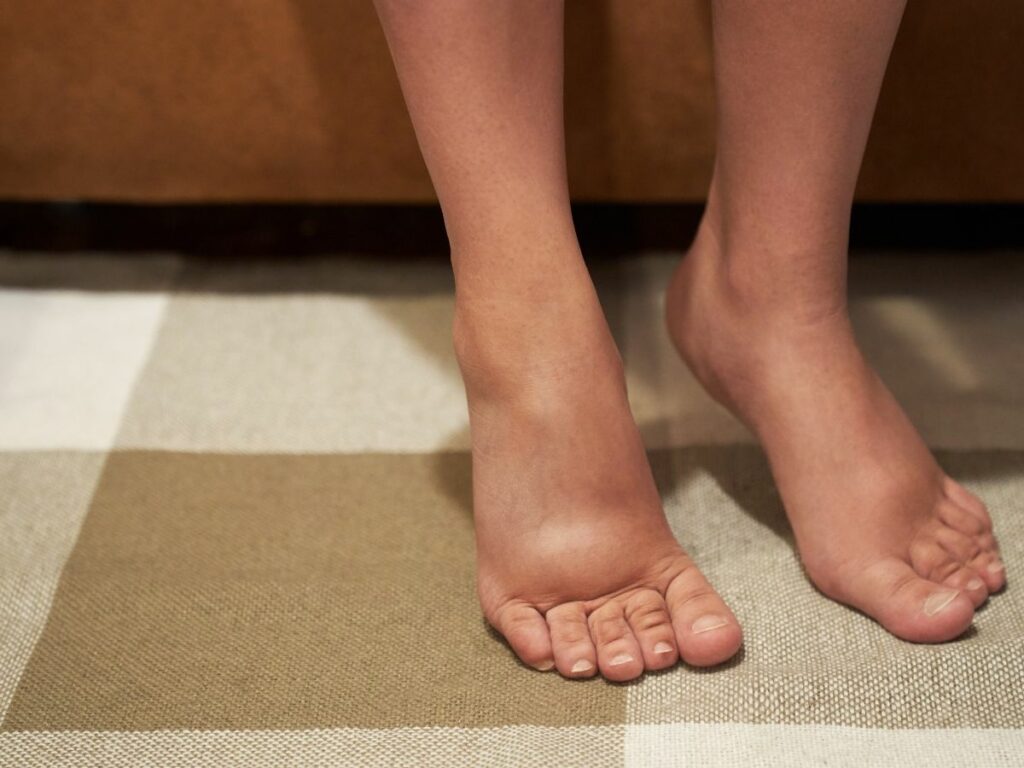
Physical activity like brisk walking, cycling, or swimming enhances blood flow to the lower extremities. Stretching exercises that flex the ankles and toes help keep nerves active and responsive.
Medical Screening and Professional Care
Regular medical checkups allow for early detection of underlying health conditions. For individuals with diabetes, consistent monitoring of blood sugar, cholesterol, and blood pressure helps reduce the risk of nerve damage.

Doctors may recommend blood tests to assess vitamin levels or nerve conduction studies to measure signal speed. Physical therapists and podiatrists can suggest orthotic devices or specialized footwear to improve comfort and prevent further nerve compression.
Comparison Table: Common Triggers vs. Prevention Methods
| Common Triggers of Neuropathy in Feet | Preventive or Protective Measures |
| High blood sugar (diabetes) | Maintain stable glucose levels through balanced meals, medication, and monitoring |
| Poor circulation or smoking | Exercise regularly, avoid tobacco, and manage cholesterol |
| Vitamin B12 or folate deficiency | Include fortified foods or supplements after medical advice |
| Alcohol or toxin exposure | Limit alcohol intake and use protective gear in chemical environments |
| Nerve compression or injury | Wear supportive shoes and use ergonomic posture when standing or walking |
| Certain medications | Discuss alternatives with your healthcare provider and monitor side effects |
| Chronic inflammation or obesity | Adopt anti-inflammatory diets and maintain a healthy weight |
This table shows how each trigger can be countered with a specific lifestyle or medical adjustment. Small daily actions like moving more, eating well, and checking your feet can protect you from long-term nerve pain.
Living Comfortably with Neuropathy
If neuropathy has already developed, managing symptoms is possible through consistent self-care and professional guidance. Treatment often includes a combination of medication, physical therapy, and home remedies to ease discomfort and maintain mobility.
Mild cases may respond to over-the-counter pain relievers, while doctors can prescribe medications like gabapentin or duloxetine to calm nerve pain. Some patients find relief through topical creams containing capsaicin or lidocaine.
Physical therapy strengthens muscles, improves coordination, and increases circulation to the lower limbs. Therapists may introduce balance exercises or gentle massage to stimulate nerves. Complementary approaches such as acupuncture, hydrotherapy, or low-impact yoga can also help relieve tension and improve overall comfort.
With consistent care, many people reduce pain, regain sensation, and maintain mobility despite neuropathy. The goal is not only to manage symptoms but to restore confidence in daily movement.
Holistic Habits That Support Nerve Recovery
Because nerve healing happens slowly, prevention and lifestyle management go hand in hand. Integrating the following habits can make a noticeable difference in how your feet feel and function.
- Stay Hydrated: Water helps transport nutrients that repair cells and maintain healthy blood viscosity.
- Manage Stress: Chronic stress triggers inflammation that may worsen nerve pain. Deep breathing, meditation, or journaling can help.
- Prioritize Sleep: Rest allows the body to regenerate and repair nerve tissue overnight.
- Avoid Extreme Temperatures: Protect your feet from hot water, heating pads, or icy surfaces to prevent accidental burns or frostbite.
- Regular Massage: Improves circulation, reduces stiffness, and keeps muscles supple around affected nerves.
These actions support your body’s natural ability to repair itself and keep you comfortable day to day.
When to Seek Medical Help
Sometimes neuropathy can signal a deeper issue that requires medical attention. If you experience sudden weakness, severe pain, or loss of coordination, seek professional evaluation promptly.
You should also see a doctor if:
- Numbness spreads rapidly or affects both legs.
- You notice changes in skin color or ulcers that do not heal.
- Pain worsens at night or interferes with sleep.
- You have diabetes and experience new or unusual sensations in your feet.
Early treatment is key. Neurologists, podiatrists, or endocrinologists can identify the cause, adjust medications, and recommend therapies to slow progression.
Foot Nerve Health: Protecting Your Steps for Life
Your feet carry you through thousands of steps every day, yet they’re often the first to reveal hidden health issues. Protecting them means protecting your independence and quality of life. Most forms of neuropathy can be avoided or significantly improved by managing blood sugar, staying active, eating nutritiously, and caring for your feet daily.
By paying attention to small warning signs and maintaining regular checkups, you can safeguard nerve health before symptoms become disabling. Consistent care allows you to walk, move, and live comfortably for years to come.
If you’re interested in building on this topic, explore related wellness strategies like improving circulation naturally or boosting nerve repair through nutrition. Each step you take toward healthier feet strengthens your body’s overall foundation for mobility and vitality.
About Dr. Sean Ormond



